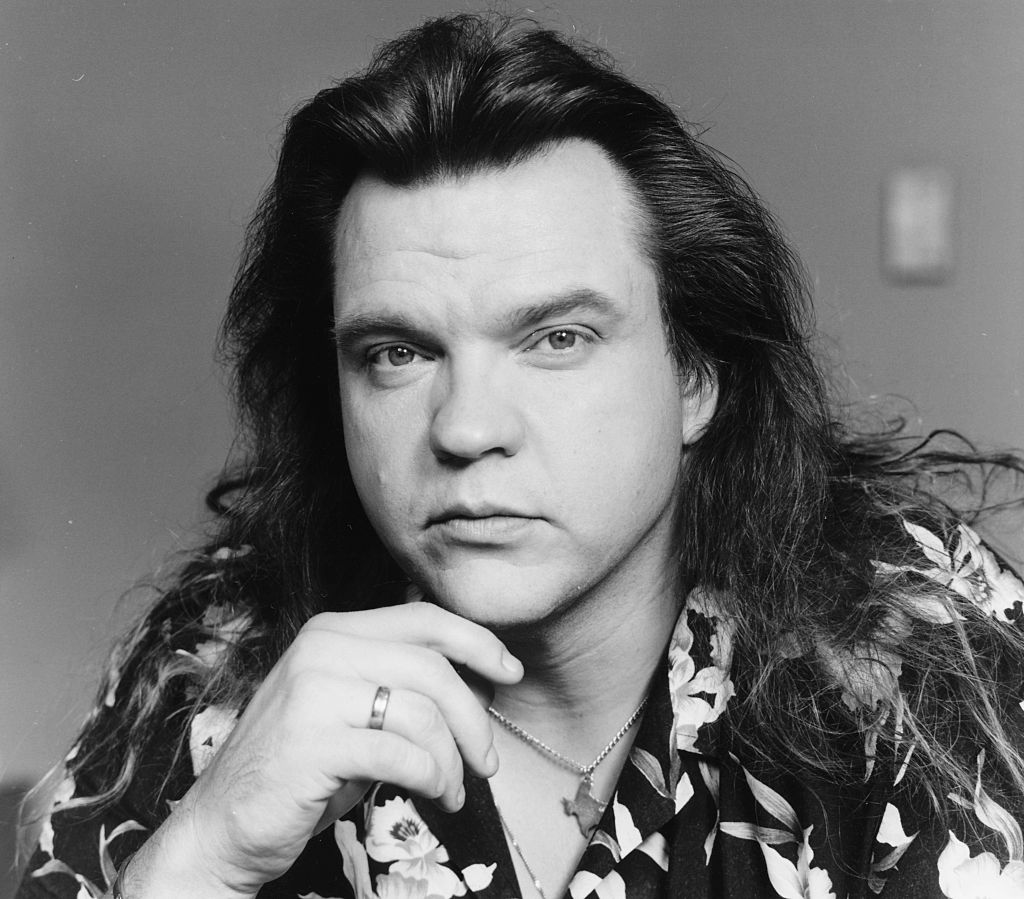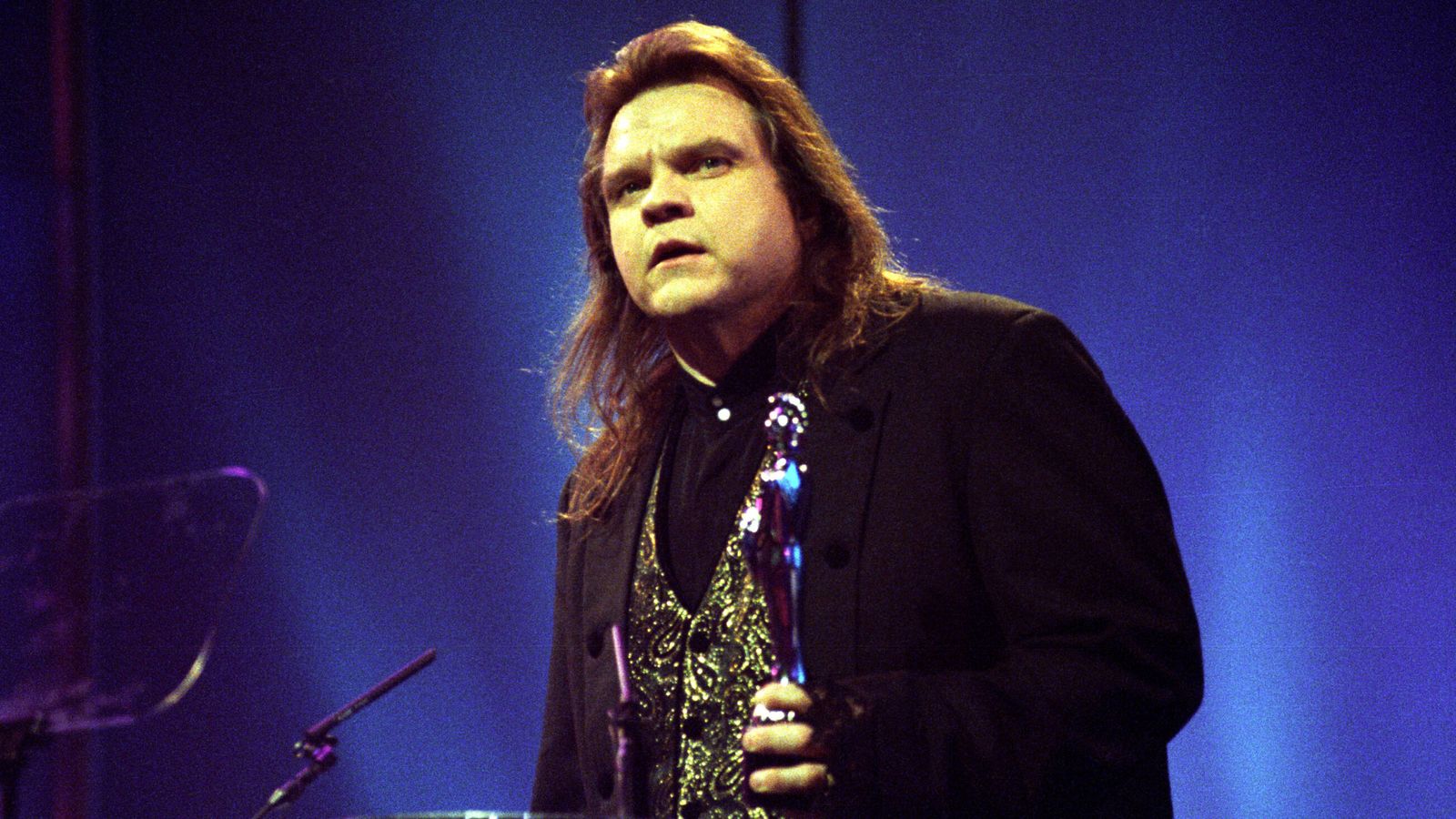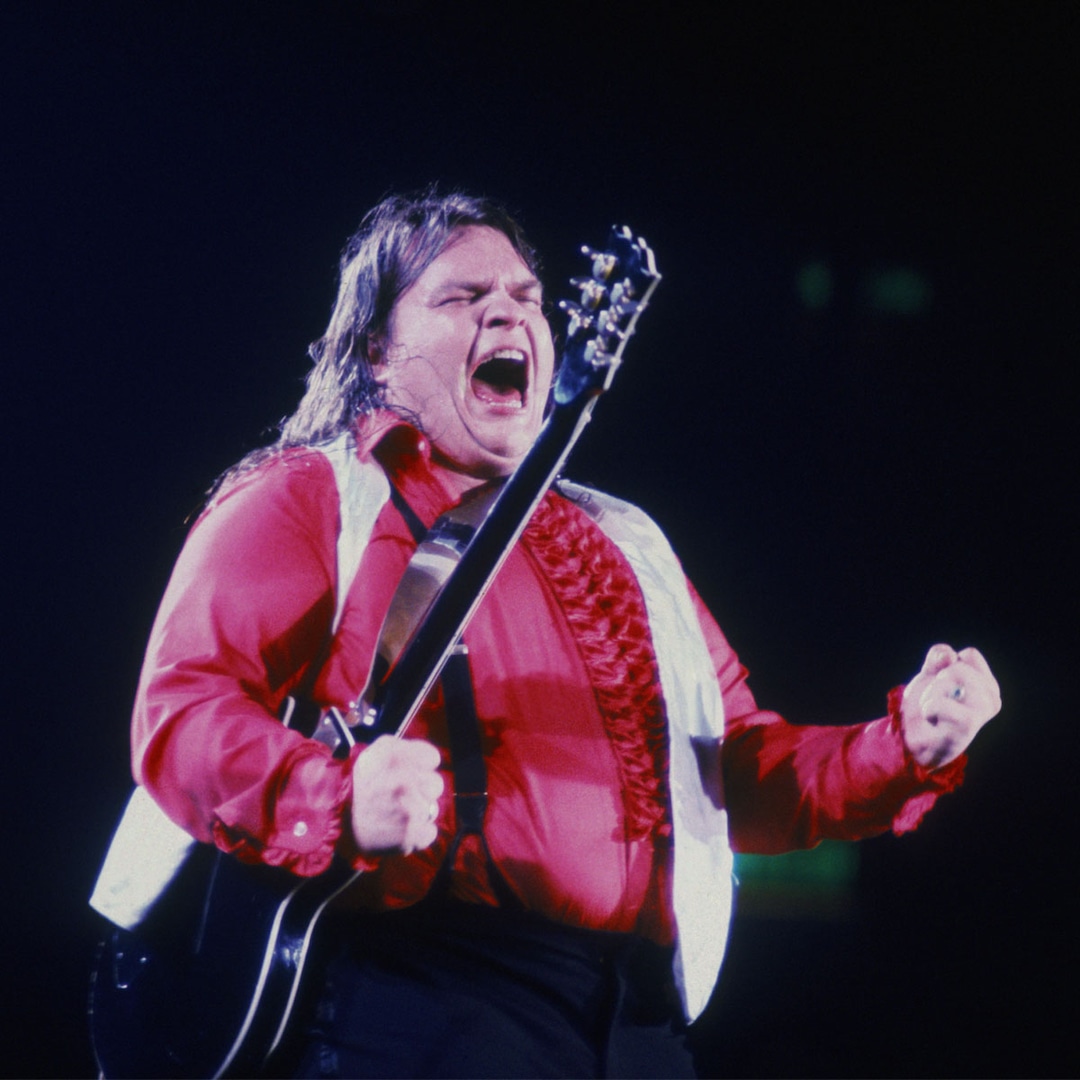Meat Loaf Singer: The Enduring Legacy Of A Rock Icon
The name Meat Loaf conjures images of theatrical rock, soaring vocals, and an undeniable stage presence that captivated millions. More than just a singer, Meat Loaf was a phenomenon, a larger-than-life character whose music transcended genres and generations. His powerful voice and dramatic storytelling, particularly in the iconic "Bat Out of Hell" album, cemented his place as one of rock's most unique and beloved figures. From his humble beginnings to global superstardom, his journey was as epic as his songs, leaving an indelible mark on the landscape of music and entertainment.
The world mourned the loss of this irreplaceable artist when Meat Loaf, born Marvin Lee Aday, passed away at the age of 74 on January 20, 2022. His death marked the end of an era, but his music and legacy continue to resonate deeply with fans worldwide. This article delves into the life, career, and lasting impact of the legendary Meat Loaf singer, exploring the man behind the myth, his unparalleled musical contributions, and the unique theatricality that defined his artistry.
Table of Contents
- The Man Behind the Myth: Who Was Meat Loaf?
- A Voice Like No Other: Meat Loaf's Musical Style
- Bat Out of Hell: The Album That Defined a Career
- Beyond the Music: Meat Loaf's Acting Career
- The Unforgettable Stage Presence of Meat Loaf
- The End of an Era: Meat Loaf's Passing
- Curating the Ultimate Meat Loaf Playlist
- The Enduring Appeal of Meat Loaf
The Man Behind the Myth: Who Was Meat Loaf?
Before he became the global rock sensation known as Meat Loaf, he was Marvin Lee Aday, a young man from Dallas, Texas, with a powerful voice and an even more powerful ambition. His life story is as compelling and dramatic as the rock operas he performed, filled with twists, turns, and a relentless pursuit of his artistic vision. Understanding the man behind the myth is key to appreciating the depth of his music.
Early Life and Formative Years
Born Marvin Lee Aday on September 27, 1947, in Dallas, Texas, Meat Loaf's early life was shaped by a unique family dynamic. His mother, Wilma Artie (Hukel), was a teacher and a gospel singer, imbuing him with an early appreciation for vocal performance and the power of song. His father, Orvis Wesley Aday, was a police officer. It was during his childhood that he acquired the nickname "Meat Loaf," a moniker that would eventually become synonymous with his larger-than-life persona. He later legally changed his first name to Michael, but the world would forever know him by his childhood nickname.
His formative years were not without challenges, but they undeniably contributed to the raw emotion and dramatic intensity that would characterize his later work. He developed a love for performance early on, participating in school plays and developing his vocal abilities. This early exposure to theatre and music laid the groundwork for the unique blend of rock and theatricality that would become his trademark.
Meat Loaf Personal Data & Biodata
| Attribute | Detail |
|---|---|
| Full Name (Birth) | Marvin Lee Aday |
| Full Name (Legal) | Michael Lee Aday |
| Known As | Meat Loaf |
| Born | September 27, 1947 |
| Died | January 20, 2022 (aged 74) |
| Birthplace | Dallas, Texas, U.S. |
| Occupation | Singer, Songwriter, Actor, Record Producer |
| Parents | Wilma Artie (Hukel) (Mother), Orvis Wesley Aday (Father) |
| Genres | Rock and Roll, Hard Rock, Heavy Metal, Pop Rock, Glam Rock, Progressive Rock |
| Years Active | 1968–2022 |
The Road to Rock Stardom
Meat Loaf's path to musical success was far from conventional or immediate. He spent years honing his craft, performing in various bands and theatrical productions. His powerful, operatic voice was a unique instrument, capable of conveying immense emotion and power. He experimented with different musical styles, including rock and roll and heavy metal, always pushing the boundaries of what was expected from a rock singer. His early career saw him involved in Broadway productions, notably "Hair," which further refined his theatrical flair and stage presence. This period of diverse experience was crucial in shaping the multifaceted artist he would become, allowing him to seamlessly blend rock music with dramatic storytelling.
A Voice Like No Other: Meat Loaf's Musical Style
What truly set Meat Loaf apart was his voice. It was a force of nature – powerful, versatile, and capable of incredible emotional range. He was known for his ability to belt out high notes with operatic intensity, then drop into a tender whisper, all within the same song. This dynamic vocal prowess, combined with his theatrical delivery, made every performance a captivating experience. He didn't just sing songs; he performed entire narratives, transforming each track into a mini-drama.
His musical style was a rich tapestry woven from various genres. While firmly rooted in rock and roll, his sound incorporated elements of heavy metal, glam rock, progressive rock, and even pop rock. This genre-bending approach, often orchestrated by his long-time collaborator Jim Steinman, created a unique niche for Meat Loaf. His music was epic, bombastic, and deeply emotional, often exploring themes of love, longing, and rebellion with a grandiosity rarely seen in rock music. This distinctive blend ensured that the Meat Loaf singer stood out in a crowded music scene.
Bat Out of Hell: The Album That Defined a Career
In 1977, Meat Loaf flew onto the music scene like a bat out of hell with the release of his seminal album, "Bat Out of Hell." This album, a collaboration with songwriter Jim Steinman, was not just a collection of songs; it was a rock opera, a sprawling narrative of teenage angst, love, and rebellion, presented with unparalleled theatricality. Initially met with mixed reviews and slow sales, "Bat Out of Hell" eventually became one of the best-selling albums of all time, selling over 50 million copies worldwide. Its enduring popularity is a testament to its timeless themes, Steinman's masterful songwriting, and Meat Loaf's powerful, impassioned delivery.
The album's success was a slow burn, fueled by relentless touring and word-of-mouth. It defied musical trends of the time, offering a maximalist, romantic, and often humorous take on rock music. The seven songs on the album, including epic tracks that ran for over eight minutes, created a cohesive and immersive listening experience. It was a bold statement, a rejection of punk's minimalism, and a triumph of artistic ambition.
Iconic Tracks and Their Stories
"Bat Out of Hell" is replete with tracks that have become rock anthems, each telling its own vivid story:
- "Bat Out of Hell": The title track, a sprawling, operatic epic that perfectly encapsulates the album's dramatic scope. It's a high-octane narrative of a motorcycle crash, delivered with Meat Loaf's signature intensity.
- "Paradise by the Dashboard Light": A theatrical duet that charts the course of a youthful romance from passionate beginnings to a resigned domesticity. Its playful back-and-forth vocals and narrative structure made it an instant classic and a staple of classic rock radio.
- "Two Out of Three Ain't Bad": A poignant ballad showcasing Meat Loaf's vocal vulnerability and Steinman's knack for crafting emotionally resonant lyrics about unrequited love and compromise.
- "I'd Do Anything for Love (But I Won't Do That)": Released much later as part of "Bat Out of Hell II: Back into Hell" (1993), this song became another massive hit, demonstrating the enduring power of the Meat Loaf-Steinman partnership. Its enigmatic "that" became a subject of endless discussion, adding to its allure. This track, along with others from the "Bat Out of Hell" series, solidified the Meat Loaf singer's status as a master of the rock ballad.
These songs, among others, showcased Meat Loaf's ability to inhabit characters and convey complex emotions, making them relatable and profoundly moving for millions of listeners.
Beyond the Music: Meat Loaf's Acting Career
While his music career dominated the headlines, Meat Loaf was also an accomplished actor with a significant filmography. His theatrical background made the transition to film and television a natural one. Perhaps his most iconic acting role came early in his career as Eddie in the 1975 cult classic "The Rocky Horror Picture Show." His performance as the ex-delivery boy, bursting out of a freezer to deliver the show-stopping "Hot Patootie – Bless My Soul," is etched into cinematic history. This role perfectly utilized his unique blend of rock and roll energy, theatrical flair, and a touch of the grotesque.
His acting career extended far beyond "Rocky Horror," with appearances in over 50 films and television shows. He often played memorable character roles, leveraging his imposing physical presence and distinctive voice. Notable film credits include "Fight Club" (1999), where he played Robert "Bob" Paulson, and "Wayne's World" (1992). Whether on stage or screen, Meat Loaf brought the same commitment and larger-than-life energy that defined his musical performances, further cementing his status as a versatile entertainer.
The Unforgettable Stage Presence of Meat Loaf
A Meat Loaf concert was never just a concert; it was an event, a spectacle, a theatrical experience that left audiences spellbound. He was known for his powerful, high-energy stage presence, often drenched in sweat, flailing his arms, and collapsing dramatically. His performances were characterized by:
- Dramatic Storytelling: Every song was a mini-play, with Meat Loaf embodying the characters and emotions of the lyrics. He didn't just sing; he acted out the narratives.
- Physicality: Despite his large stature, he was incredibly agile and expressive on stage, using his body to convey the intensity and passion of his music.
- Vocal Power: His voice was always the centerpiece, effortlessly soaring through complex melodies and delivering raw, unadulterated emotion.
- Audience Interaction: He had a unique ability to connect with his audience, drawing them into his world and making them feel part of the dramatic journey.
His live shows were legendary for their intensity and duration, often pushing him to his physical limits. This commitment to performance was a hallmark of the Meat Loaf singer, earning him a dedicated global fanbase who revered his unique approach to rock music.
The End of an Era: Meat Loaf's Passing
The music world was plunged into sadness on January 20, 2022, when Meat Loaf passed away at the age of 74. The news of his death was met with an outpouring of tributes from fans, fellow musicians, and actors worldwide, all mourning the loss of a true original. While the exact cause of his death was not publicly disclosed, his family confirmed he passed away surrounded by his loved ones.
His passing marked the end of an extraordinary career that spanned over five decades, leaving behind a legacy of iconic music, unforgettable performances, and a unique artistic vision. The Meat Loaf singer had faced various health challenges in his later years, but his spirit and passion for music remained undimmed until the very end.
A Legacy Etched in Rock History
Meat Loaf's legacy is multifaceted. He was more than just a rock star; he was a theatrical visionary who merged the worlds of rock and opera, creating a genre unto itself. His collaboration with Jim Steinman produced some of the most enduring and beloved rock anthems of all time. He proved that rock music could be grand, emotional, and deeply narrative, inspiring countless artists who followed.
His impact is evident in the continued sales of "Bat Out of Hell," which remains a perennial bestseller, and the unwavering devotion of his fanbase. He was an artist who defied categorization, a true individual whose powerful voice and dramatic flair will continue to resonate for generations to come. The Meat Loaf singer left an indelible mark, not just on music, but on the hearts of all who experienced his unique artistry.
Curating the Ultimate Meat Loaf Playlist
Following the sad news that Meat Loaf had passed away aged 74, fans around the globe revisited his extensive catalog. For those looking to dive into his unparalleled discography or simply relive the magic, here's a selection of some of his very best songs, making for a perfect Meat Loaf playlist:
- "Bat Out of Hell" (from Bat Out of Hell, 1977) - The quintessential epic.
- "Paradise by the Dashboard Light" (from Bat Out of Hell, 1977) - The ultimate rock duet.
- "Two Out of Three Ain't Bad" (from Bat Out of Hell, 1977) - A powerful ballad of unfulfilled love.
- "You Took the Words Right Out of My Mouth (Hot Summer Night)" (from Bat Out of Hell, 1977) - A high-energy rock anthem.
- "I'd Do Anything for Love (But I Won't Do That)" (from Bat Out of Hell II: Back into Hell, 1993) - His massive comeback hit.
- "Objects in the Rear View Mirror May Appear Closer Than They Are" (from Bat Out of Hell II: Back into Hell, 1993) - A poignant, reflective masterpiece.
- "Dead Ringer for Love" (feat. Cher, from Dead Ringer, 1981) - A dynamic and fun collaboration.
- "Rock and Roll Dreams Come Through" (from Bat Out of Hell II: Back into Hell, 1993) - An anthem for dreamers.
- "For Crying Out Loud" (from Bat Out of Hell, 1977) - A beautiful, emotional closer to his iconic debut.
- "Blind Before I Stop" (from Blind Before I Stop, 1986) - Showcasing his continued vocal power.
This playlist offers a glimpse into the diverse range and incredible talent of the Meat Loaf singer, highlighting the theatricality, passion, and vocal prowess that defined his career.
The Enduring Appeal of Meat Loaf
Even after his passing, the appeal of Meat Loaf remains as strong as ever. His music continues to find new audiences, testament to its timeless themes and bombastic energy. In an era often dominated by fleeting trends, Meat Loaf's commitment to grand, narrative-driven rock stands out as a unique artistic statement. He was an artist who poured his entire being into every performance, creating an emotional connection with his listeners that few others could achieve.
His music offers an escape into a world of dramatic passion, youthful rebellion, and epic romance, all delivered with a voice that could shake the foundations of a stadium. The Meat Loaf singer wasn't just a musician; he was a storyteller, an actor, and a showman who redefined what a rock concert could be. His legacy is a reminder that authenticity, passion, and a willingness to defy convention can create art that truly lasts.
Meat Loaf, the rockstar behind hits like “I’d Do Anything For Love” and “Bat Out of Hell,” may have left us, but his powerful voice and dramatic narratives continue to echo through the halls of rock history. His unique blend of rock and roll, heavy metal, and theatrical flair created a legacy that is both iconic and deeply personal to millions of fans. We invite you to share your favorite Meat Loaf memory or song in the comments below, or explore more articles on legendary rock artists on our site.

Remembering Meat Loaf, A Singer Who Was Larger Than Life - SPIN

Meatloaf Singer

Exploring The Life And Legacy Of Meat Loaf Through Images